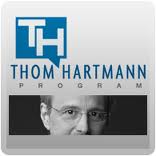 On Monday, Russian foreign minister Sergey Lavrov said, “We are calling on Syrian leadership to not only agree on placing chemical weapons storage sites under international control, but also it's subsequent destruction and fully joining the treaty on prohibition of chemical weapons.” Shortly afterward, a Syrian official told reporters that his nation welcomed the proposal. In a series of television interviews that same evening, President Obama called the Russian proposal a “possible breakthrough” and a “positive development.”
On Monday, Russian foreign minister Sergey Lavrov said, “We are calling on Syrian leadership to not only agree on placing chemical weapons storage sites under international control, but also it's subsequent destruction and fully joining the treaty on prohibition of chemical weapons.” Shortly afterward, a Syrian official told reporters that his nation welcomed the proposal. In a series of television interviews that same evening, President Obama called the Russian proposal a “possible breakthrough” and a “positive development.”
The plan for a Syrian surrender of chemical weapons was a response to an off-the-cuff comment by Secretary of State John Kerry, who was asked what Syria could do to avoid a military strike by the United States. Secretary Kerry responded, saying, Assad “could turn over every single bit of his chemical weapons to the international community in the next week, but he isn't about to do it and it can't be done obviously.” Almost immediately, Russian officials urged Syria to accept the proposal, and Syria accepted. Within 24 hours, China and Iran backed the plan as well, and pulled us back from brink of a potential world war.
This is what happens when our leaders use diplomatic efforts, rather than military strikes, to resolve a conflict. In a single day, we went from facing a world war, to Russian officials working on an “effective, concrete” plan for Syria to hand over chemical weapons. And, once those weapons are surrendered, there is little risk that chemicals will wind up in the hands of terrorists. Some media reports claim that President Obama worked out this proposal with Vladimir Putin during the G20 summit in Russia, and other reports say that Secretary Kerry's off-hand comment initiated the proposal.
Regardless of who gets credit, the lesson is clear. Dropping bombs is not the only way to resolve a conflict.
Diplomacy works.
By Thom Hartmann A...



